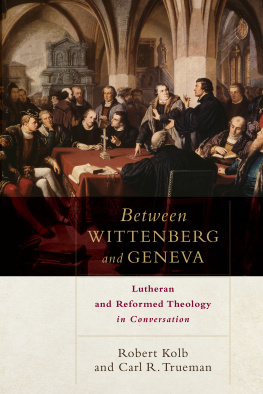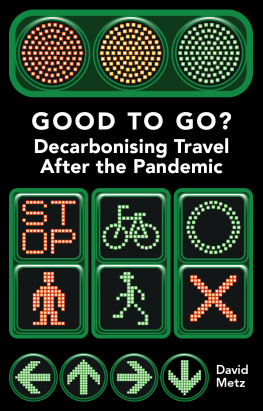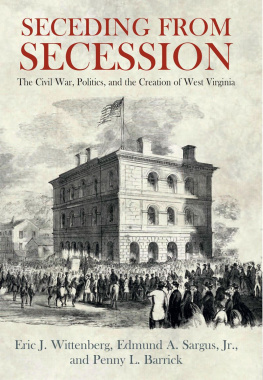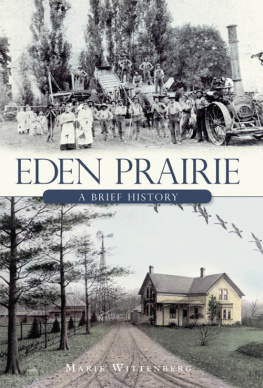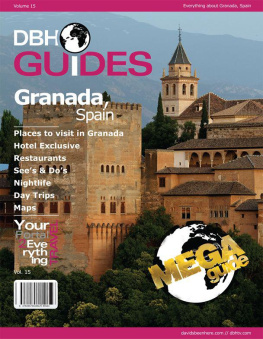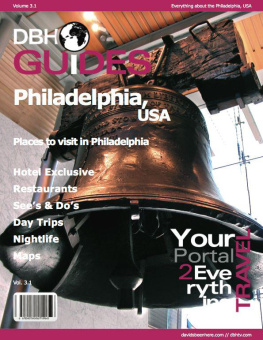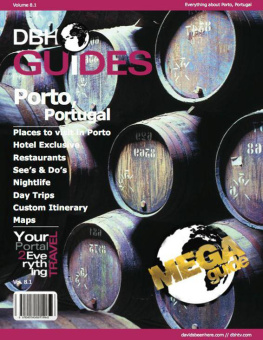David Wittenberg - Time Travel
Here you can read online David Wittenberg - Time Travel full text of the book (entire story) in english for free. Download pdf and epub, get meaning, cover and reviews about this ebook. year: 2013, publisher: Fordham University Press, genre: Detective and thriller. Description of the work, (preface) as well as reviews are available. Best literature library LitArk.com created for fans of good reading and offers a wide selection of genres:
Romance novel
Science fiction
Adventure
Detective
Science
History
Home and family
Prose
Art
Politics
Computer
Non-fiction
Religion
Business
Children
Humor
Choose a favorite category and find really read worthwhile books. Enjoy immersion in the world of imagination, feel the emotions of the characters or learn something new for yourself, make an fascinating discovery.

- Book:Time Travel
- Author:
- Publisher:Fordham University Press
- Genre:
- Year:2013
- Rating:4 / 5
- Favourites:Add to favourites
- Your mark:
- 80
- 1
- 2
- 3
- 4
- 5
Time Travel: summary, description and annotation
We offer to read an annotation, description, summary or preface (depends on what the author of the book "Time Travel" wrote himself). If you haven't found the necessary information about the book — write in the comments, we will try to find it.
Time Travel — read online for free the complete book (whole text) full work
Below is the text of the book, divided by pages. System saving the place of the last page read, allows you to conveniently read the book "Time Travel" online for free, without having to search again every time where you left off. Put a bookmark, and you can go to the page where you finished reading at any time.
Font size:
Interval:
Bookmark:
Time Travel
The Popular Philosophy of Narrative
David Wittenberg

Copyright 2013 Fordham University Press
All rights reserved. No part of this publication may be reproduced, stored in a retrieval system, or transmitted in any form or by any meanselectronic, mechanical, photocopy, recording, or any otherexcept for brief quotations in printed reviews, without the prior permission of the publisher.
Fordham University Press has no responsibility for the persistence or accuracy of URLs for external or third-party Internet websites referred to in this publication and does not guarantee that any content on such websites is, or will remain, accurate or appropriate.
Fordham University Press also publishes its books in a variety of electronic formats. Some content that appears in print may not be available in electronic books.
Library of Congress Cataloging-in-Publication Data
Wittenberg, David.
Time travel : the popular philosophy of narrative / David Wittenberg. 1st ed.
p. cm.
Includes bibliographical references and index.
ISBN 978-0-8232-4996-1 (cloth : alk. paper)
ISBN 978-0-8232-4997-8 (pbk. : alk. paper)
1. Time perception in literature. 2. Time travel in literature. 3. Narration (Rhetoric) 4. LiteraturePhilosophy. I. Title.
PN56.T5W58 2013
809.93384dc23
2012029101
Printed in the United States of America
15 14 13 5 4 3 2 1
First edition
for Lara and Leela
A great number of people helped me think through and complete this book. Thanks to Holly Carver, Dilip Gaonkar, Paul Harris, Brooks Landon, Rob Latham, Tom Lay, Tom Lutz, Julia Madsen, David Martinez, Eric Newman, Joe Parsons, Lily Robert-Foley, Garrett Stewart, Satomi Saito, Michael Witmore, Agnes and Albert Wittenberg, Haihong Yang, and my undergraduate and graduate students at the University of Iowa. Thanks also to my colleagues in the International Society for the Study of Time, and to the curators and librarians at the superb Eaton Collection of Science Fiction and Fantasy at the University of California, Riverside. Special thanks, as always, to Judith Butler, Jean McGarry, and Helen Tartar. Most of all, thanks to Lara Trubowitz, whose support is vital to me in every way.
I gratefully acknowledge Byron Preiss Visual Publications for permission to reprint John Jude Palencars illustrations from the 1981 Distant Stars version of Samuel Delanys Empire Star (illustrations Byron Preiss Visual Publications). An earlier version of my
Time Travel
What happened to me? I whispered to the lady at my side.
Pardon? Oh, a meteor got you, but you didnt miss a thing, believe me, that duet was absolutely awful. Of course it was scandalous: they had to send all the way to Galax for your spare, whispered the pleasant Ardritess.
What spare? I asked, suddenly feeling numb.
Why, yours, of course.
Then where am I?
Where? Here in the theater. Are you all right?
Then I am the spare?
Certainly.
STANISLAW LEM, The Star Diaries
Anyone who thinks about time travel for a while is likely to encounter something like the following dilemma. On the one hand, time travel stories would seem to constitute a minor and idiosyncratic literature, a subtype of other popular genres such as science fiction, romance, and action-adventure; time travel makes use of improbable devices and extravagant paradoxes, and in general lays claim to only a small share of the plots, topics, or themes that could conceivably interest a reader, writer, or critic of literature. On the other hand, since even the most elementary narratives, whether fictional or nonfictional, set out to modify or manipulate the order, duration, and significance of events in timethat is, since all narratives do something like travel through time or construct alternate worldsone could arguably call narrative itself a time machine, which is to say, a mechanism for revising the arrangements of stories and histories. In this more expansive view, literature itself might be viewed as a subtype of time travel, rather than the other way around, and time traveling might be considered a fundamental condition of storytelling itself, even its very essence.
This book sets out, not exactly to resolve such a dilemma over the significance of time travel stories, but rather to amplify and further complicate it, even to expose some of its more provocative implications. In this respect, the book is polemical as well as analytical. I contend that there ought to be much more attention paid to the seemingly eccentric genre of time travel fiction by literary, cultural, and film theorists, as well as by readers and scholars interested more broadly in either theories of narrative or philosophies of time. If it eventually turns out that the question of time travel is tantamount to the question of narrative itself, then such a fundamental question will almost certainly have been woefully underconsidered by the very thinkers best positioned to comprehend and answer it.
I argue that time travel fiction is a narratological laboratory, in which many of the most basic theoretical questions about storytelling, and by extension about the philosophy of temporality, history, and subjectivity, are represented in the form of literal devices and plots, at once both convenient for criticism and fruitfully complex. I wish to suggest not merely that time travel stories are examples or depictions of narratological or philosophical issues, but that these stories are themselves already exercises in narratology and the theorization of temporalitythey are in essence narrative machines, more or less latent, emergent, or full blown. And following the leads they expose, the present book intends to contribute its part to a fundamental reconsideration of the philosophy of time, as well as to a fundamental synthesis of such philosophy with narrative theory, goals in the service of which time travel fiction will be regarded as a philosophical literature par excellence.
If it seems brash for an academic critic to make such broad philosophical claims for a popular genre and, moreover, for a genre that has previously garnered only sporadic attention from academic criticism, the brashness may be mitigated by the books inevitably interdisciplinary focus. By necessity, I borrow and amalgamate a range of insights and information from cultural and film theory, philosophy (both analytic and continental), physics, psychology, and historiography. In each case, interpretations of the literature of time travel, chiefly of popular science fiction, serve as a kind of escort into and around these other fields. Let me begin with a few such interpretations. Each of the following three readings analyzes a single time travel story as a paradigm of a certain form of temporal manipulation, and in turn as an access into crucial aspects of narrative theory. Following these three readings, I briefly outline some of the conceptual and methodological links that such interpretations might suggest between fields of study concerned with problems of time travelin particular, popular literature and film, literary history and criticism, analytic philosophy, and physics. I also comment on the somewhat counterintuitive history of the genre of time travel fiction that I necessarily construct alongside the specific theoretical considerations time travel stories compel me to pursue.
Next pageFont size:
Interval:
Bookmark:
Similar books «Time Travel»
Look at similar books to Time Travel. We have selected literature similar in name and meaning in the hope of providing readers with more options to find new, interesting, not yet read works.
Discussion, reviews of the book Time Travel and just readers' own opinions. Leave your comments, write what you think about the work, its meaning or the main characters. Specify what exactly you liked and what you didn't like, and why you think so.

